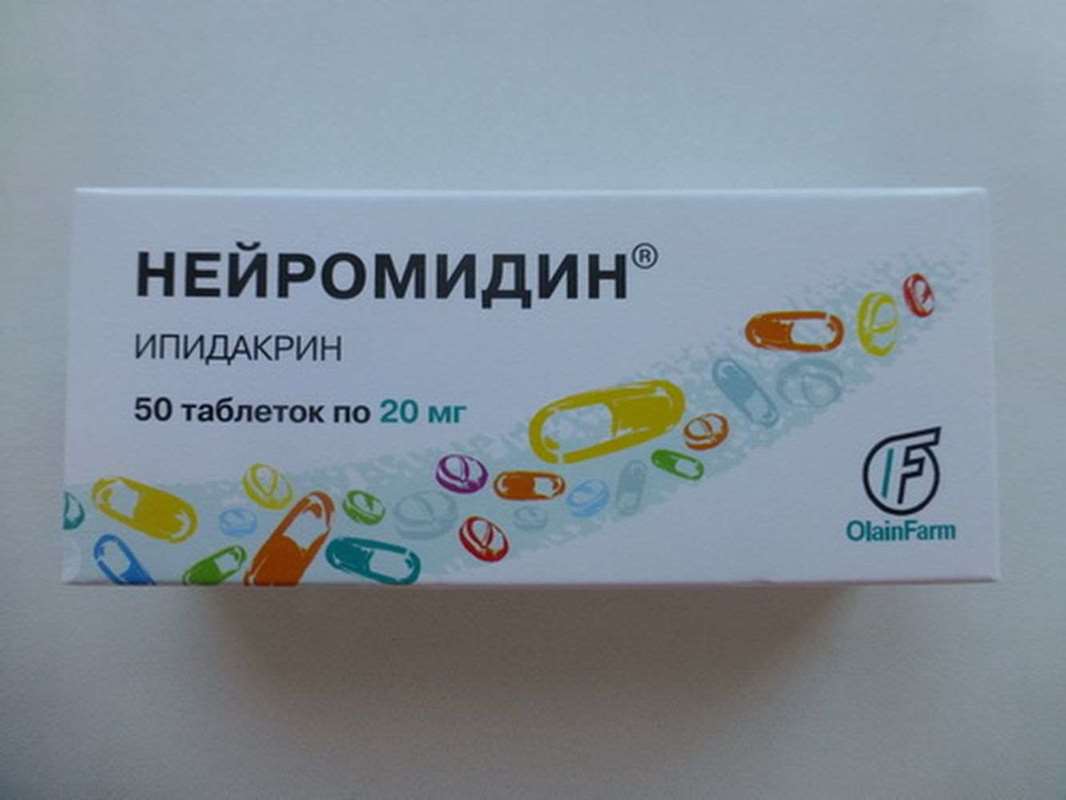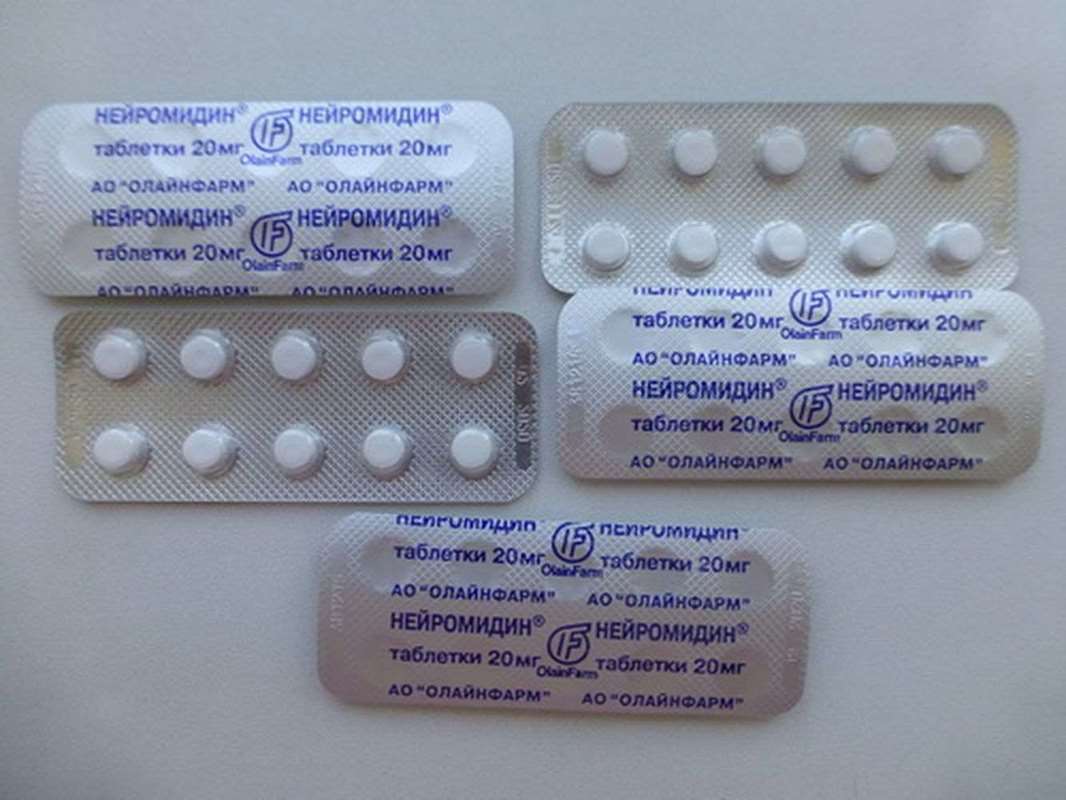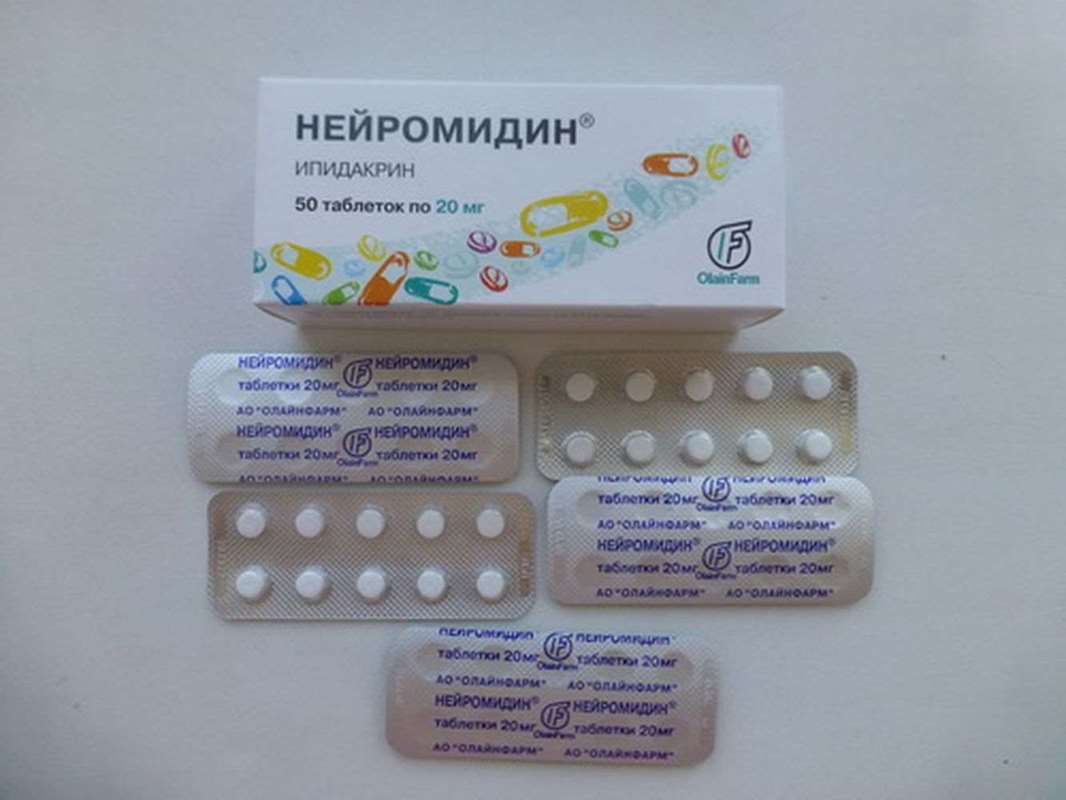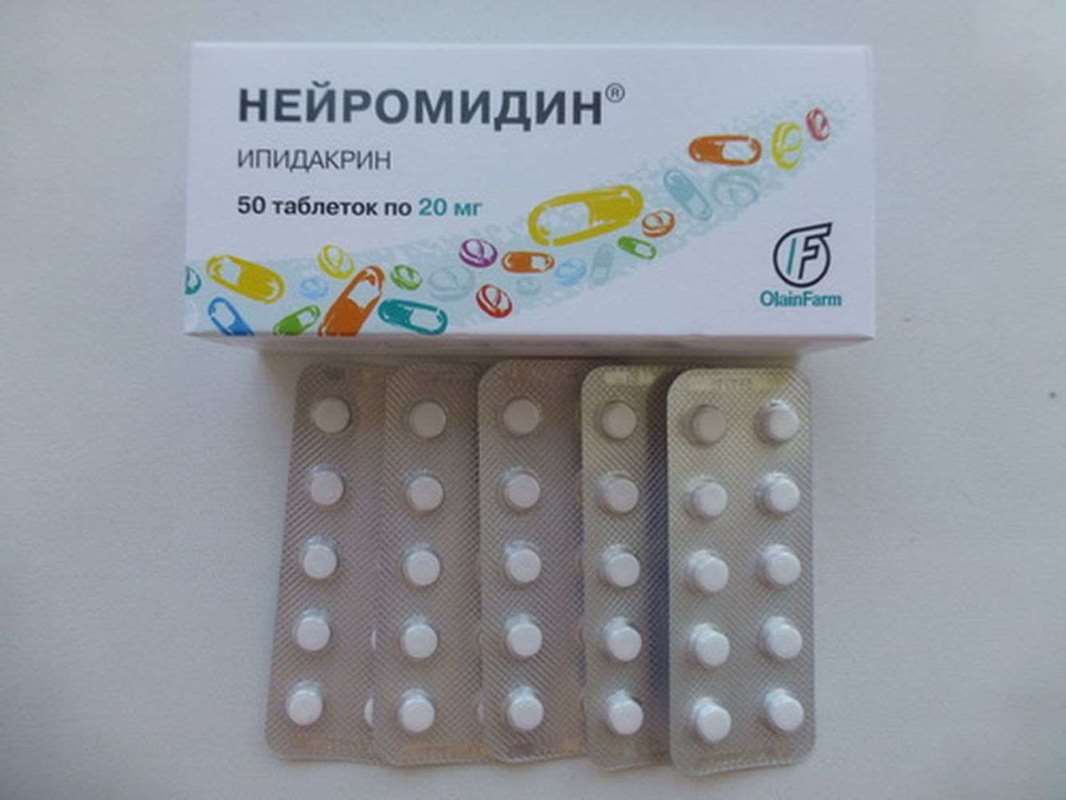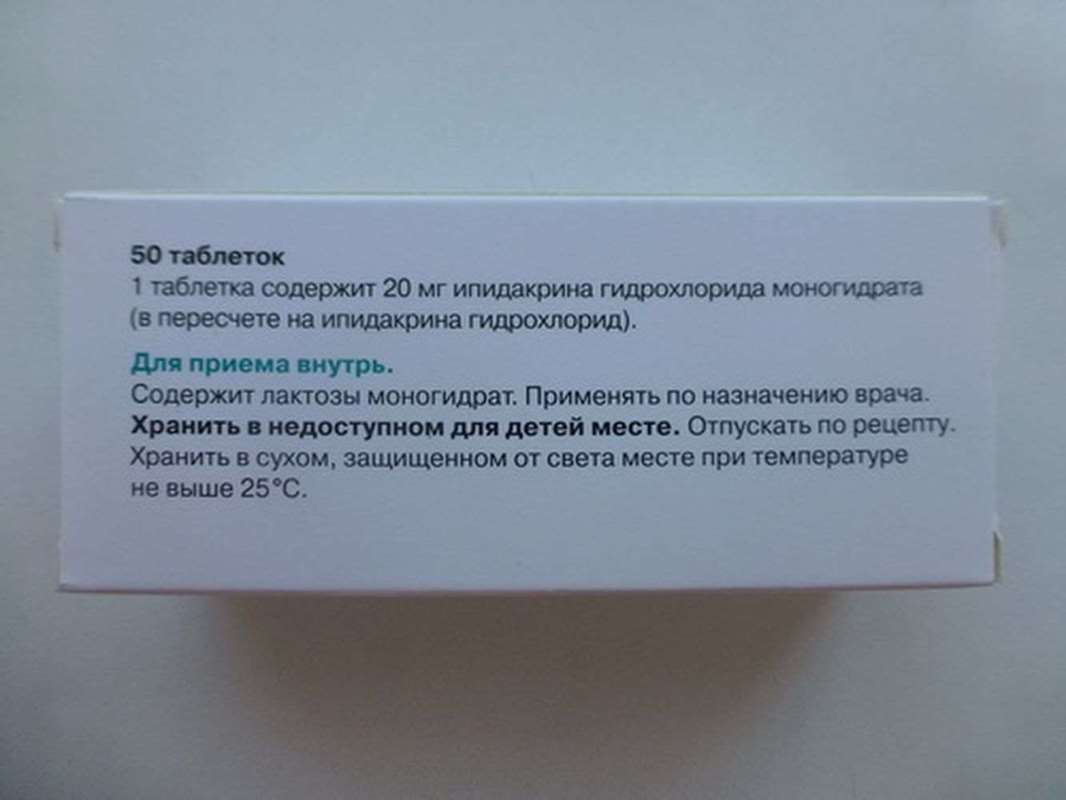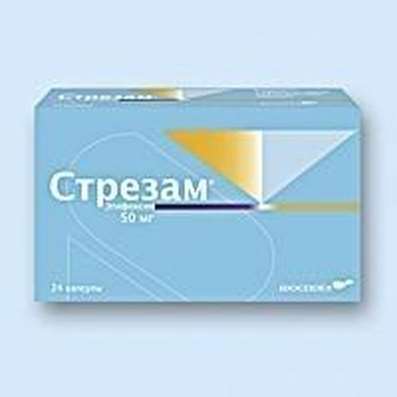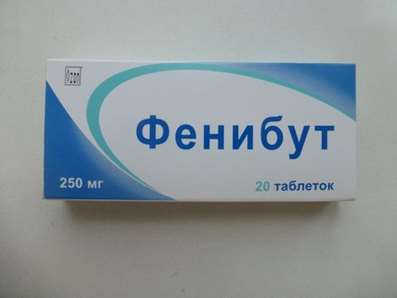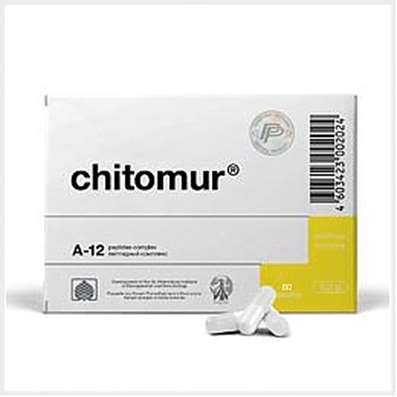Neiromidin (Ipidacrine) - belongs to the group of anticholinesterase drugs. In a complex therapy Neuromidin enhances the sedative effect. The drug also has a cholinergic effect which results in attenuating of diabetic neuropathic pain. Neuromidin is recommended to patients with minor ischemic stroke and cognitive disorders. The drug helps to improve memory, attention and practical reasoning.
Neyromidin- reversible cholinesterase inhibitor that directly stimulate impulse conduction in neuromuscular synapse and in the central nervous system (CNS) due to blockade of potassium channels of the membrane. Neyromidin enhances the effect on smooth muscle not only acetylcholine, epinephrine and serotonin. histamine and oxytocin. Neuromidin has the following pharmacological effects:
- improves and stimulates neuromuscular transmission;
- enhances conduction in peripheral nervous system disorders due to injury, inflammation, effects of local anesthetics, some antibiotics, potassium chloride, etc .;
- enhances contractility of smooth muscle organs under the influence of acetylcholine agonists, adrenaline, serotonin, histamine and oxytocin receptors, except for rolling chloride;
- It improves memory.
The drug has no teratogenic, embryotoxic, mutagenic, carcinogenic and immunotoxic action. No effect on the endocrine system.
Pharmacokinetics
After oral administration, the drug is rapidly absorbed from the gastrointestinal tract. The maximum plasma concentration is reached after one hour. 40-55% of the active substance are bound to plasma proteins. NeyromidinŽ rapidly enters the tissue and stabilization step in the blood plasma is found only 2% of the active substance. The drug is metabolized in the liver. Excretion via the renal and extrarenal (through the gastrointestinal tract). The half-life is 40 minutes. Excretion of the drug NeyromidinŽ kidneys occurs primarily by tubular secretion, and only 1/3 of the drug is released by glomerular filtration.
Indications for use.
Diseases of the peripheral nervous system (neuritis, polyneuritis and polyneuropathy, poliradikulopatii, myasthenia gravis and the myasthenic syndrome of various etiologies); bulbar paralysis and paresis; recovery period of organic lesions of the central nervous system, accompanied by movement disorders; Combination Therapy of demyelinating diseases; intestinal atony.
Side effect:
Cause excitation of m-cholinergic receptors: salivation, sweating, palpitations, nausea, diarrhea, jaundice, bradycardia, epigastric pain, increased allocation of the bronchi secretion, convulsions. Drooling and bradycardia can be reduced m-holinoblokatorami (atropine, etc.).
Rarely, after using the higher doses were observed dizziness, headache, vomiting, weakness, drowsiness, skin and allergic reactions (itching, rash). In these cases, reduce the dose or short-term (1-2 days) interrupt drug.
These side effects occur in less than 10% of patients.
The appearance of side effects during treatment with it is imperative to inform the treating physician.
Suggested Use:
Dose and duration of treatment is determined individually depending on the severity of the disease.
Peripheral nervous system diseases, myasthenic gravis syndrome and 10-20 mg (0.5-1 tablet) 1-3 times a day. The course of treatment is one to two months. If necessary, treatment can be repeated several times with a break between courses in 1 -2 months.
To prevent myasthenic crises with severe disorders of neuromuscular conduction briefly parenterally administered 1-2 ml (15-30 mg) NeyromidinŽ 1.5% solution for injection, and then continue treatment NeyromidinŽ tablets, the dose can be increased to 20-40 mg ( 1-2 tablets) 5 times a day.
Treatment and prevention of intestinal atony: 20 mg (one tablet) 2-3 times a day for 1-2 weeks.
If the next dose is not accepted in time, it does not take further.
The maximum daily dose of 200 mg.
Packaging:
- Comes in original packaging. Item is brand new and unopened.
Storage:
- Keep away from direct sunlight.
- Keep locked and away from children.
- Store in dry place at room temperature.
- Do not exceed storage temperature higher than 25 C
Important notice - the outer box design may vary before prior notice!

 Cart
Cart
